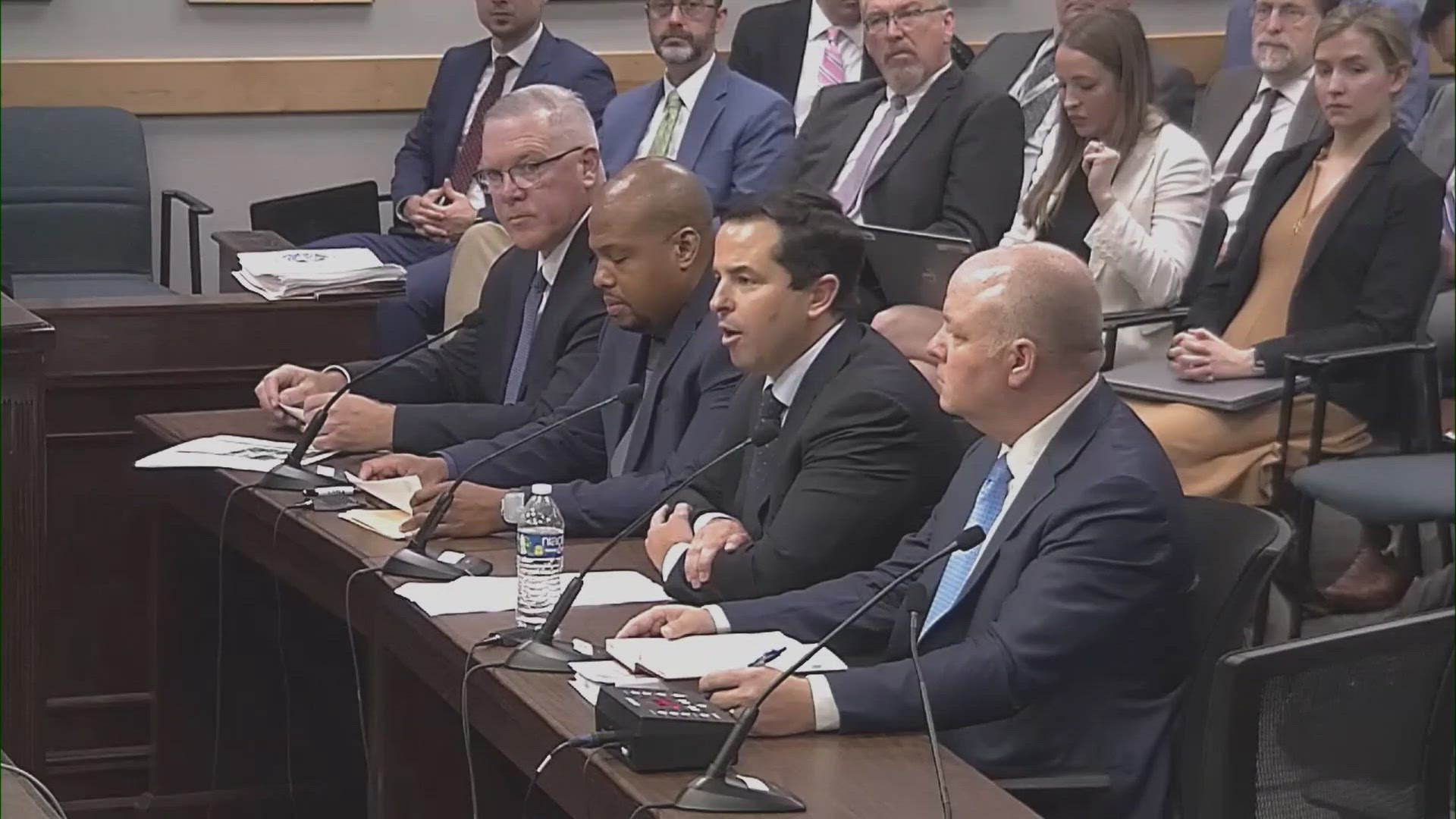HOUSTON — CenterPoint Energy’s CEO apologized to customers for the company’s response to Hurricane Beryl at a hearing before the Public Utility Commission of Texas Thursday.
“I take personal accountability for the areas where we fell short of our customers’ expectations,” CenterPoint CEO Jason Wells said. “Most importantly, I want to apologize to our customers for the frustration we caused. We will do better,” he said.
Wells said he and his leadership team will not make excuses after taking 10 days to restore power to all the 2.2 million customers affected by Beryl. He pledged to improve and “act with a sense of urgency” while Greater Houston is still in the middle of hurricane season.
Wells and three other executives outlined immediate, near-term, and long-term plans for improvements in resiliency, communication, and greater collaboration with emergency responders.
Company officials announced a new cloud-based outage tracker will go live on August 1, replacing the online tool that failed during the Derecho storm in May and remained out of service during Hurricane Beryl. The company also pledged to increase staffing at its customer service call center and to hold daily media briefings before, during, and after the next big storm.
Additionally, it plans to launch a widespread public outreach effort to directly engage with customers on ways to improve. Those will include small group listening sessions, neighborhood meetings, and open houses.
As for Hurricane Beryl restoration efforts, CenterPoint Vice President Randy Pryor told utility regulators the company deployed more than 15,000 CenterPoint and mutual assistance workers, who replaced 3,000 poles and trimmed or removed more than 35,000 trees during Hurricane Beryl recovery efforts.
Pryor and other company officials acknowledged the need to do more routine tree maintenance or “vegetation management” as it’s known in the industry.
“It is clearer than ever before that we must expand this effort,” he said.
That pledge comes after KHOU 11 Investigates reported how CenterPoint didn’t spend much on vegetation management last year compared to other electric utilities affected by Hurricane Beryl.
“As of July 16, we have we have nearly doubled our vegetation management workforce to immediately address the higher risk areas of vegetation throughout the rest of this calendar year,” Wells said.
PUC Commissioner Jimmy Glotfelty echoed the need for a more robust tree maintenance program, even if it affects the company’s bottom line.
"I think that the mindset of vegetation management has to be, ‘We use every technology we find, every crew that we can, and that we don't skimp on this,'” Glotfelty said.
CenterPoint’s presentation Thursday comes as the company seeks approval for a $2 billion resiliency plan that will raise customer bills by an estimated $3 per month, according to state filings.
PUC Commissioner Lori Cobos urged CenterPoint to file an amended application, a “more robust resilience plan” that takes into account feedback from the PUC, state legislators, and an independent consultant CenterPoint has pledged to hire.
“We want to make sure we get this right,” Cobos said.

